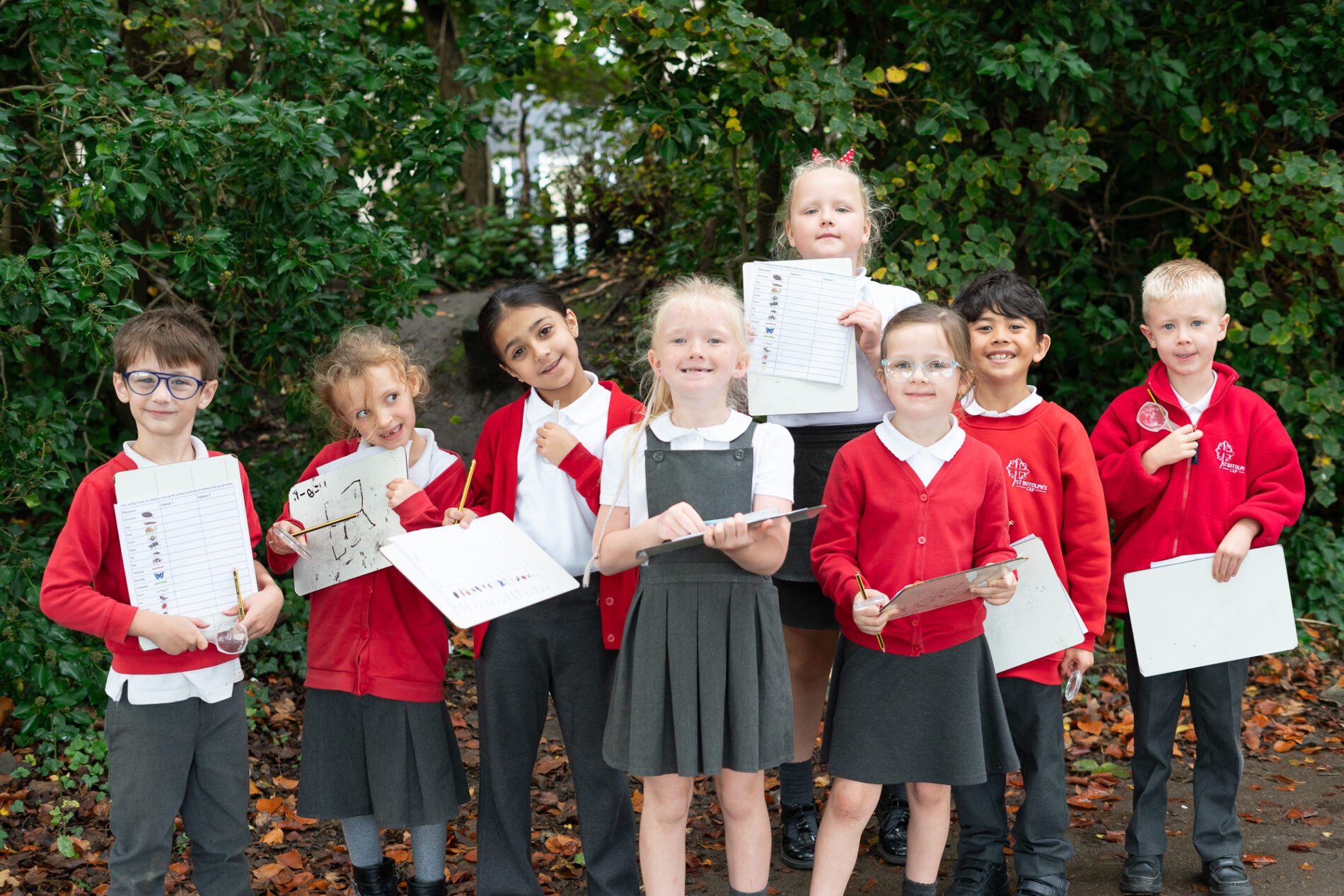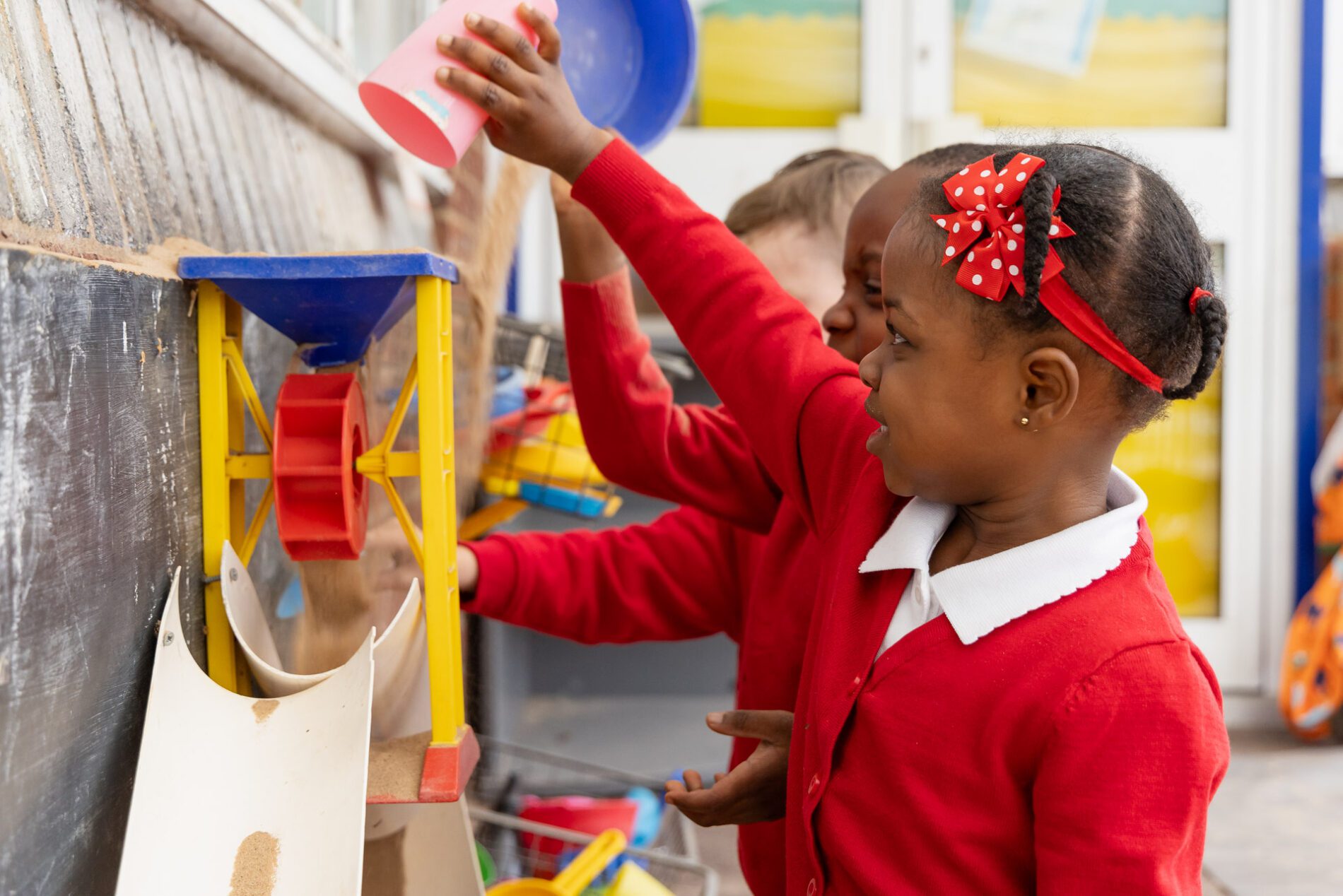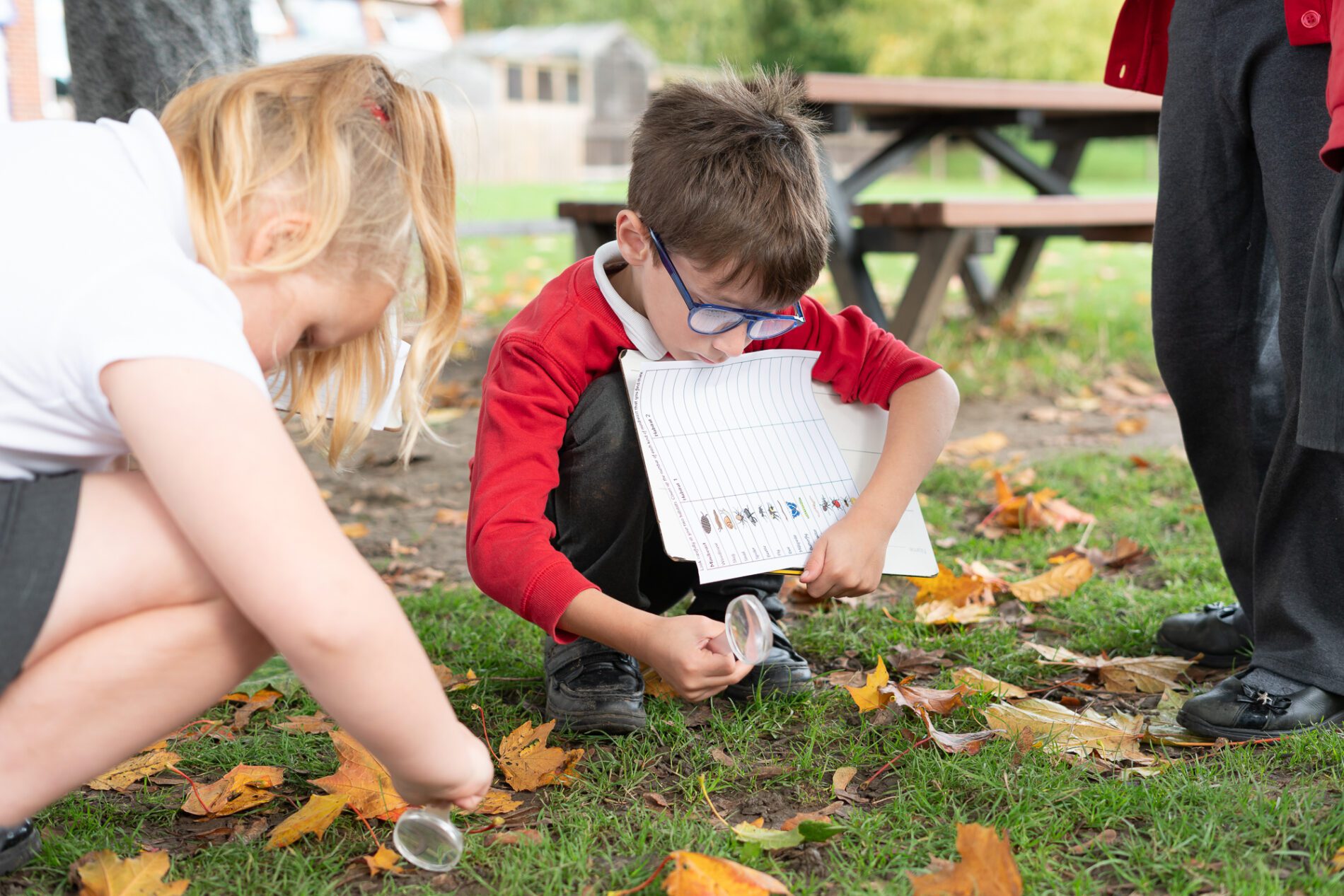Science Subject Leader: Mrs R Mann
For any more information on St. Botolph’s Science Curriculum, please contact the office.
” Science should inspire a sense of excitement and curiosity in children so that they ask questions that fuel explorations and investigations about the universe we live in.”
Intent
The Bible shows us that the world was created specially and we, ourselves, are part of it. Science plays a vital role within our curriculum ensuring that children have a varied and well-mapped-out programme of learning.
We intend for our children to have the opportunity to learn through varied systematic investigations building on their skills of working scientifically, as well as their scientific knowledge. We aspire for our pupils to become successful, confident scientists and to enjoy the process of exploring values and ideas through science.


Implementation
Linked knowledge organisers and retrieval practices enable children to learn and retain the important, useful, and powerful vocabulary and knowledge contained within each unit. Each lesson has a clear focus. Subject matter is presented clearly with scientific knowledge and enquiry skills developing with increasing depth and challenge as children move through the year groups. Pupils’ complete investigations and hands-on activities while gaining the scientific knowledge required to progress year on year. The sequence of lessons helps to embed scientific knowledge and skills, with each lesson building on previous learning. There is also the opportunity to regularly review, evaluate and recap understanding. Activities are effectively differentiated so that all children have an appropriate level of support and challenge.
Teachers check for learning throughout the lessons using key assessment questions interwoven into the teaching sequence. They identify misconceptions and provide direct feedback. Teaching is designed to ensure children know more and remember more.
Teachers are equipped with secure scientific subject knowledge, enabling them to deliver high-quality teaching and learning opportunities whilst making them aware of possible scientific misconceptions.
As a school, we take every opportunity to enhance learning in science through different avenues such as forest school, workshops, trips, and interactions with experts. Children explore their outdoor environment and locality, developing their scientific enquiry and investigative skills. They build upon their understanding that science has changed our lives and learn about the possibilities of careers in science that are vital to the world’s future prosperity.
Impact
The successful approach to science provides children with the foundations for understanding the world around them. By the time they leave us, all pupils have a coherent knowledge and understanding of the three science disciplines: biology, chemistry, and physics. This knowledge, alongside scientific skills, enables them to ask questions, think critically, weigh evidence and draw relevant conclusions. Pupils feel confident in their science knowledge and enquiry skills.
Leaders monitor the quality and impact of the science curriculum through lesson observations and regular pupil voice to ascertain the extent to which pupils know more and remember more.
The impact and measure of this is seen in our pupils who are equipped with the skills and knowledge they need to enable them to be ready for the Key Stage 3 curriculum and for life as an adult in the wider world.


Science in Each Stage
Understanding the World ELG: The Natural World – Children at the expected level of development will: – Explore the natural world around them, making observations and drawing pictures of animals and plants; Know some similarities and differences between the natural world around them and contrasting environments, drawing on their experiences and what has been read in class; – Understand some important processes and changes in the natural world around them, including the seasons and changing states of matter.
Personal, Social and Emotional Development ELG: Managing Self – Children at the expected level of development will: – Be confident to try new activities and show independence, resilience and perseverance in the face of challenge; – Explain the reasons for rules, know right from wrong and try to behave accordingly; – Manage their own basic hygiene and personal needs, including dressing, going to the toilet and understanding the importance of healthy food choices.
Seasons and seasonal changes to weather and the environment – rain/ice/snow etc
• Light and dark
• Shadows
• Nocturnal and Diurnal animals
• Recycling – glass/paper/metal/plastic and non-recyclables.
• Wildlife – how litter affects the sea creatures
• Floating and sinking – materials
• Healthy Eating
• Self-care – handwashing, toileting
• Dental Care – toothbrushing
In Year One and Two, the focus is to enable pupils to experience and observe phenomena, looking more closely at the natural and humanly constructed world around them, as well continue to develop their curiosity. Children in KS1 are taught to use scientific methods, processes and skills built upon in EYFS using different types of scientific enquiry. We encourage our children to perform simple tests using observations, as well as gather and record data to answer their own scientific questions with guidance.
In Lower Key Stage Two (Year 3 and 4), pupils build upon our children’s understanding of ‘Working Scientifically’, they are taught to increase their scientific methods, processes, and skills further. Children are required to ask relevant scientific questions, set up practical comparative enquires and understand fair testing. They are expected to select effective equipment to make measurement with increased accuracy, use scientific language, gather, record and present data in different forms, as well as use results to draw conclusions. Children also need to identify differences, similarities or changes related to simple, scientific ideas and processes.
In Upper Key Stage Two (Year 5 and 6), our children will plan, set, and conduct different types of practical enquires, whilst recognising and controlling variables, as well as take accurate and precise measurements. Children are expected to record data of increasing complexity, as well as report and present findings of results to make scientific conclusions. They are also required to use appropriate techniques, apparatus, and materials during fieldwork and laboratory work.
Science Progression
SEND Information
Our SEND and disadvantaged pupils are given the necessary support in class to fully access the supported Science curriculum. Learning is adapted where necessary to support SEND/EAL pupils to give equal opportunities for all to be confident in approaching any problems faced. Interventions, support and challenges are constantly revised and adapted to ensure all children are supported in achieving learning. The above areas are robustly and continuously monitored to ensure any gaps in learning are addressed.

